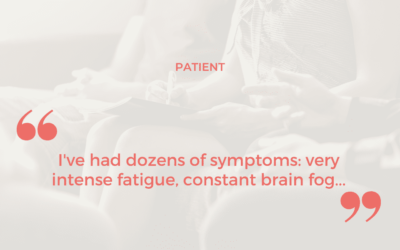Presentation :
Silvia Gramolelli is an Italian researcher. After obtaining her master degree at Sapienza University of Rome, she moved to Germany to do a PhD in infection biology. There, she started working on oncogenic herpesviruses, in particular on Kaposi’s sarcoma associated herpesvirus which is closely related to EBV. Then she moved to Helsinki where she continued working on important aspects of herpesviral oncogenesis, and she has now set up her own research group. She is currently focused on gastric cancer.
Tell us about your research on EBV
Gastric cancer (GC) is the third most deadly type of cancer and 8-10% of them are caused by EBV infection. Virtually, all tumor cells in EBVaGC are infected with EBV, and epidemiological studies clearly point to a causal relationship between EBV infection and GC. However, the molecular events occurring during the first steps of EBVaGC remain not well understood. How a healthy gastric epithelial cell becomes EBV-infected and what are molecular steps driven by the virus towards the oncogenic transformation and aberrant proliferation remain elusive.
The recent development of the organoid-based technology allows the establishment of 3D cultures from several healthy tissues of epithelial origin, among others the stomach, that recapitulate several features of the tissue of origin hence offering for the first time a unique platform for the study of EBV infection in primary gastric epithelial cells. My main goal is to use an EBV infection model of gastric organoids to study at the molecular level the initial oncogenic events that lead to EBVaGC.
Why do I think it is important to educate patients? What should we tell them about EBV?
Awareness and education are the most powerful tools we have to fight the diseases caused by this virus. More than 90% of the population is infected with EBV and therefore at risk of developing EBV-related disease. It is therefore crucial to screen patients for EBV reactivation and the presence of the virus in cancer cells, as this can lead to more accurate diagnosis, better designed therapies and, hopefully, a better prognosis.
Some patients discover EBV after months or even years of diagnostic delays. How can we get out of this situation?
In my opinion, EBV has been neglected for too long and appropriate tests to detect (e.g. EBV reactivation) should be included in routine diagnostic tests for a wide range of diseases.
What message would I like to send to the medical community?
The spectrum of diseases caused by EBV is wide, from chronic fatigue related to infectious mononucleosis to multiple sclerosis and several forms of cancer. Therefore, EBV should be considered more widely as a possible etiological pathogen in routine diagnosis.
Through the DetectEBV platform, I would like to:
I wish to be involved in the DetectEBV initiative to the best of my ability.



